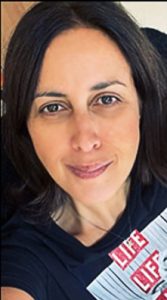In the fields of observation, chance favors only the prepared mind,” said Louis Pasteur, a pioneer chemist and “father” of microbiology …
An interactive presentation and an afternoon talk by Era Taoufik, Neurobiology Researcher of the Hellenic Pasteur Institute
“I want to be a research scientist when I grow up!”…insight tips on how to become one!
Exploiting audiovisual resources, questionnaires and scientific “fiction scenarios”, we are going to learn what molecular biology is about, why are we so interested in analyzing and understanding our DNA, what leads us to research and explore the depths of our genes and cells, how is the everyday life of a researcher within and outside the lab space! An interplay to seek the researcher side of ourselves….
The activity is addressed to high school kids and will be held inside, duration 1-1,5h
“Same genes, same cells, different people…or not that different after all?”
By unraveling the secrets of our DNA, we can get a glimpse of how life was created and evolved, and how we humans became to be so different even though we share the same “building” components…a story about diversity and inclusion through the glance of a molecular biologist!
An afternoon talk for the public, duration 30′ min

Era Taoufik, PhD, is a researcher working in the Neurobiology and Molecular Biology fields at the Cellular and Molecular Neurobiology Laboratory of the Hellenic Pasteur Institute.
Her research focuses on the development and analysis of pre-clinical systems for neurological diseases to understand the molecular and cellular mechanisms of brain physiology and pathology.
Her team applies cutting edge technologies in both in vitro and in vivo models of Parkinson’s disease to identify the spatiotemporal molecular and cellular dysfunctions during disease progression, with the ultimate aim to discover novel disease-modifying therapeutics.
Dr. Manolis Angelakis, and his team, Sofia and Georgia, will introduce us to… the hiding places of a high biosafety level laboratory!
Become an astronaut in the … lab!!
It will be a demonstration of the protective measures that must be carried out in a high biosafety level laboratory, where dangerous pathogens are cultivated.
We will discover the whereabouts of this laboratory, how it works, what experiments are carried out in such a specially designed space, how samples are handled, as well as its importance!
In this context, the most daring volunteers will be invited to transform into… astronauts of the high biosafety level laboratory!
The adventure in the world of dangerous pathogens begins in… 3, 2, 1!!!
The same team together with Neuroholics urge the solution of a subversive puzzle: “Sherlock Holmes in Kastellorizo”.






Research Director, Head of Diagnostic Department of the Hellenic Pasteur Institute
Head of the Hellenic National Reference Laboratories :
Influenza Southern Greece
Poliovirus/Enterovirus
Measles/ Rubella
Hellenic Pasteur Institute, Athens, Greece

Sofia Makka is a graduate student of the Department of Biology (University of Crete, 2019) and a graduate of the Master Program entitled "Applications of Biology in Medicine" of the Department of Biology and the School of Medicine (National and Kapodistrian University of Athens, 2022).
Since 2023, she has been a PhD candidate in the Diagnostic Department of the Hellenic Pasteur Institute. Her research interests focus on the development of protocols for the detection of pathogenic microorganisms using scanning electron microscopy (SEM).
She has published 4 original articles in international journals, while she has participated in 4 scientific conferences.

Tzouganatou is a graduate student of Agricultural University of Athens and has obtained her MSc. degree in “Bioinformatics-Computational Biology” from National and Kapodistrian University of Athens.
Since 2024 she is a PhD candidate in the Diagnostic Department of Hellenic Pasteur Institute. Her PhD thesis: “Study of the gut microbiome of migrants for identification of foodborne and non-foodborne pathogens.”
Her scientific interests focus on the study of gut microbiome using molecular methods and bioinformatics tools. She has participated in 3 scientific conferences.
Hellenic Pasteur Institute (HPI) www.pasteur.gr is an International Institute of Biomedical Research with a social missionand was founded in 1919.
HPI is a public research body that assists the State in Public Health issues. HPI has embraced the modern concept of Science, believing that an important mission of Research is the Science – Society continuous interconnection, enabling a continuous open dialogue between them. An important aspect of this connection is science education.
In that frame, HPI actively organizes Open Information Days on Science and Technology in the fields of Microbiology (pathogenic microorganisms, infectious diseases, vaccines, antimicrobial resistance, etc.), Immunology (natural and adaptive immunity, antibodies, autoimmune diseases) and Neurobiology (neurodegenerative diseases, stem cells therapies), as well as in Public Health and Hygiene fields (importance of vaccination, nutrition, exercise, smoking, alcohol and substances abuse, personal hygiene, etc). Overall, HPI offers to student and the general public a suitable environment for the acquaintance and understanding of Life Sciences and Biomedical Research.
A significant part of these activities is aimed at schools to inform students on scientific / research issues that will contribute to their subsequent University education and their professional development. HPI has many years of experience in hosting schools for educational programs, addressed to Primary and Secondary Schools students. Some of the programs that are running the last few years are:
• Educational Programs (including school visits to HPI).
• Scientific Events for the general public and students
• Educational and Social Actions (Educational Program for children Refugees of school age, educational training programs for adolescents (12-18 years old) as well as young adults (18-25 years old) living in child protection institutions, focused on key issues of everyday life (related to personal hygiene, etc).
• Special Seminars. Seminars for Kindergarten Teachers and Secondary Education Teachers (Necessity of Vaccination, etc.), Seminars in collaboration with School Counselors (Biologists, Geologists, Physicists, Chemists), addressed to teachers of 2ndary Education entitled “Today’s sciences “.










